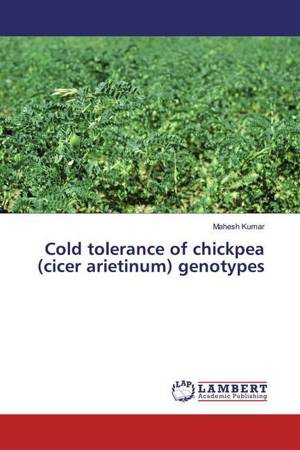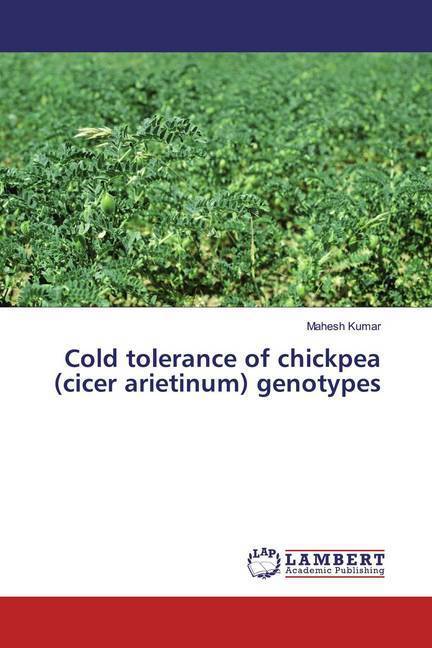
Je cadeautjes zeker op tijd in huis hebben voor de feestdagen? Kom langs in onze winkels en vind het perfecte geschenk!
- Afhalen na 1 uur in een winkel met voorraad
- Gratis thuislevering in België vanaf € 30
- Ruim aanbod met 7 miljoen producten
Je cadeautjes zeker op tijd in huis hebben voor de feestdagen? Kom langs in onze winkels en vind het perfecte geschenk!
- Afhalen na 1 uur in een winkel met voorraad
- Gratis thuislevering in België vanaf € 30
- Ruim aanbod met 7 miljoen producten
Zoeken
€ 39,45
+ 78 punten
Omschrijving
The present investigation was carried out with six chickpea genotypes viz. ICCV 88506 (Tolerant, National check), HC-1, H03-56, H07-120, H08-71 and H09- 96 differing in their cold sensitivity, to study the low temperature (5°C) induced changes in morphological, physiological, biochemical, yield and its attributing character under field conditions. Higher activities of antioxidant enzymes, lower accumulation H2O2 and MDA content in HC-1 and H07-120 than all others indicated that these enzymes play a key role in removal of ROS better in these genotypes than all other six chickpea genotypes, thus minimizing the cellular damage caused by ROS under chilling stress. Hence, the mechanism of cold tolerance was better in HC-1 and H07-120 than other six chickpea genotypes as found from physiological, biochemical, reproductive behavior, yield and its attributing traits studied.
Specificaties
Betrokkenen
- Auteur(s):
- Uitgeverij:
Inhoud
- Aantal bladzijden:
- 84
- Taal:
- Engels
Eigenschappen
- Productcode (EAN):
- 9783659798528
- Uitvoering:
- Paperback
- Afmetingen:
- 150 mm x 220 mm

Alleen bij Standaard Boekhandel
+ 78 punten op je klantenkaart van Standaard Boekhandel
Beoordelingen
We publiceren alleen reviews die voldoen aan de voorwaarden voor reviews. Bekijk onze voorwaarden voor reviews.









